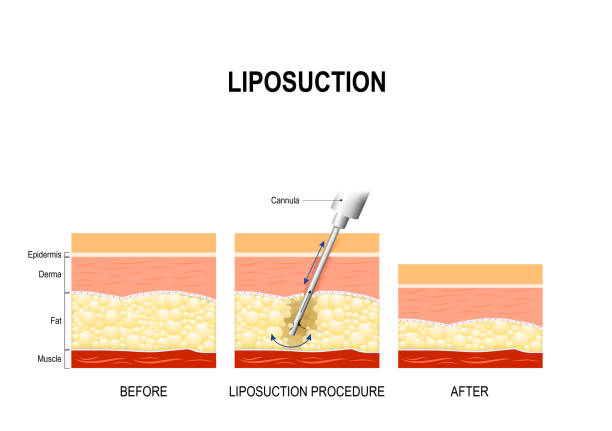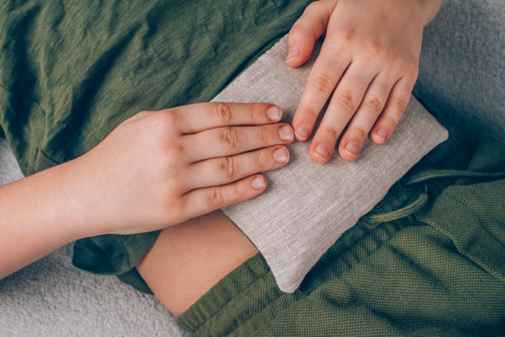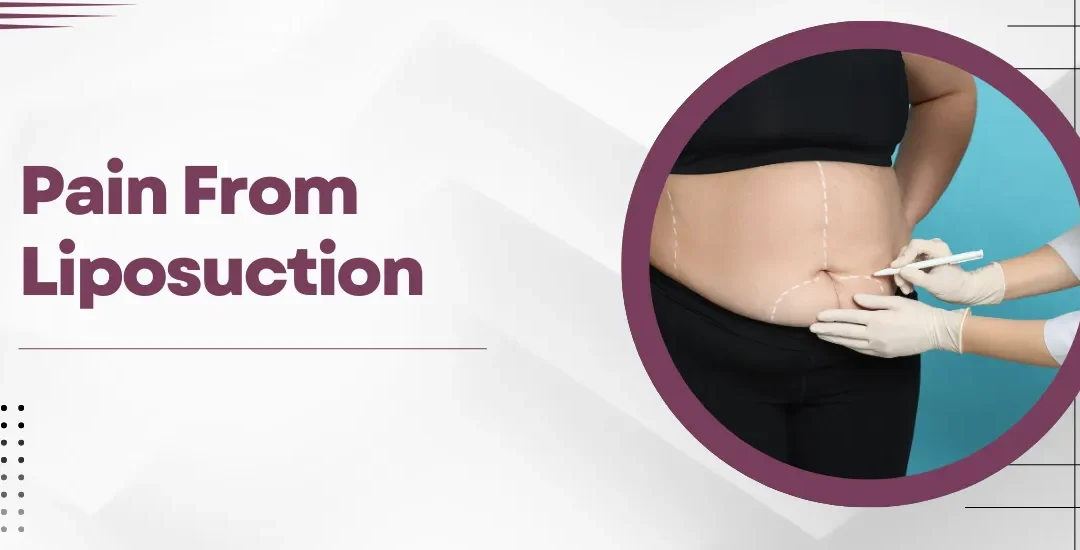How we appear can profoundly impact how we feel and others perceive us. Excess weight can often convey an image of neglect or poor health, which can affect self-esteem and social interactions. Fortunately, cosmetic advancements like liposuction offer a solution to those struggling with stubborn fat.
Dr. Harikiran Chekuri, founder of Redefine Hair Transplant & Plastic Surgery Center, a well-known weight loss clinic in Hyderabad, explains:
“Liposuction is a popular procedure to remove excess fat from specific body areas. During the procedure, a small cannula is inserted through tiny incisions to suction fat out, effectively reshaping the targeted area. Due to the safe and effective approach, an increasing number of people are turning to liposuction in Hyderabad to achieve their desired body shape.”
As with any surgical procedure, people may experience mild discomfort during healing. This blog will explore the pain associated with liposuction, how long it lasts, and how to manage it effectively.
Are you wondering how painful is liposuction? Let’s get some insights about pain from liposuction.
Pain After Liposuction and Recovery Time

Pain is a common concern for those considering liposuction. Patients are typically under anesthesia during the procedure, so they do not feel pain. However, once the anesthesia wears off, it’s normal to experience some discomfort.
Dr. Harikiran Chekuri, a sought-after plastic surgeon for liposuction in Hyderabad, explains:
“The pain after liposuction is usually described as a deep soreness, similar to the feeling after an intense workout. It’s important to understand that this discomfort is part of the body’s natural healing process and typically decreases as you recover.”
Timeline:
- First 48 Hours: Most intense pain, characterized by deep soreness
- 3 to 7 Days: Pain begins to subside, but discomfort may still be present
- 1 to 2 Weeks: Mild soreness continues as the body heals
- 3 to 4 Weeks: Pain and soreness generally diminish, with only minor discomfort remaining
Are you worried about how long the pain might last? If so, it’s crucial to consult a trusted weight-loss specialist to understand what to expect and how to prepare.
Best Ways to Manage the Pain from Liposuction

Managing the pain from liposuction effectively is critical to a smooth recovery. Here are some of the best ways to alleviate discomfort:
- Pain Medication: Take the pain medication prescribed by your surgeon as directed. These medications effectively manage post-surgical pain and help you stay comfortable during the recovery period.
- Cold Compresses: Use cold compresses on the treated areas to reduce swelling and numb the pain. This simple method can significantly ease discomfort, especially in the first few days after surgery.
- Stay Active with Light Movement: Gentle movement, like short walks, can promote circulation and speed up the healing process. Moving around helps reduce stiffness and pain, but avoid strenuous activities until fully healed.
- Compression Garments: Wearing compression garments as your surgeon recommends helps minimize swelling and supports the healing tissues. It can also reduce pain and prevent complications.
- Healthy Diet and Hydration: Eating nutritious foods and staying well-hydrated can boost your body’s healing capabilities. Proper nutrition can also help reduce inflammation and pain.
- Adequate Rest: Ensure you get plenty of rest during your recovery period. Rest is vital for allowing your body to heal and can significantly reduce the pain experienced post-surgery.
Dr. Harikiran Chekuri of Redefine Hair Transplant & Plastic Surgery Center, a cutting-edge weight loss clinic in Hyderabad, adds:
“While you can expect some discomfort after liposuction, the key to a smooth recovery lies in balancing rest with gentle movement. Staying attentive to your body’s needs and following post-operative care instructions can significantly minimize pain and enhance healing.”
When to Contact Your Doctor about the Pain from Liposuction?

Some discomfort is normal after liposuction, but knowing when the pain might indicate something more serious is important. Contact your doctor if you experience any of the following:
- If the pain suddenly becomes intense or worsens instead of improving over time
- Symptoms such as excessive redness, swelling, warmth, or pus around the incision sites
- A fever over 100.4°F (38°C) or experiencing chills
- Ongoing numbness or tingling in the treated area beyond the normal recovery period
- Any trouble breathing or chest pain, which could indicate a serious condition
- The presence of unusual discharge from the incision sites or a foul odor
- Pain that is not effectively manageable by the prescribed medication
In any of these cases, reach out to your doctor immediately to ensure your recovery stays on track.
Conclusion
Excess weight can lead to discomfort and affect your quality of life. With advancements in body contouring, procedures like liposuction offer hope and a path to a more confident you. Professionals like Dr. Harikiran Chekuri, who are passionate about helping people achieve their desired looks, are making a real difference in the lives of many.
Are you ready to take the next step in your body transformation journey? Consult a skilled plastic surgeon who can help you make an informed decision about your health and appearance.
Frequently Asked Questions:
Does liposuction hurt, and is the pain worse than childbirth?
Liposuction pain is generally considered less intense than childbirth. While both experiences involve discomfort, liposuction pain is usually manageable with medication. It typically subsides within a few days to weeks.
Can I take painkillers before liposuction to reduce pain?
It’s essential not to take painkillers before liposuction without your surgeon’s approval. Some painkillers, especially those containing aspirin or ibuprofen, can increase the risk of bleeding during surgery, so always consult your doctor before taking any medication.
Are there any long-term pain complications from liposuction?
Long-term pain complications from liposuction are uncommon. Most patients experience temporary discomfort that resolves as the body heals. However, nerve damage or prolonged pain can occur in rare cases requiring medical attention.
How long does it take to see the final results of liposuction?
Final results from liposuction typically become visible within 3 to 6 months. Initial swelling and bruising may obscure the results. Still, the contouring effects will become clearer and more defined as the body heals.
Can liposuction be combined with other cosmetic procedures?
Liposuction can be combined with other cosmetic procedures, such as tummy tucks or breast lifts, to achieve more comprehensive body sculpting. Combining procedures can enhance overall results, but discussing this with your surgeon is essential to ensure safety and optimal outcomes.
Are there any lifestyle changes required after liposuction?
Maintaining a healthy diet and regular exercise is crucial after liposuction to preserve the results. While liposuction removes fat cells, it doesn’t prevent new fat from accumulating. Hence, a balanced lifestyle helps sustain the body contours achieved through the procedure.
Disclaimer: The information shared in this content is for educational purposes only and not for promotional use.

